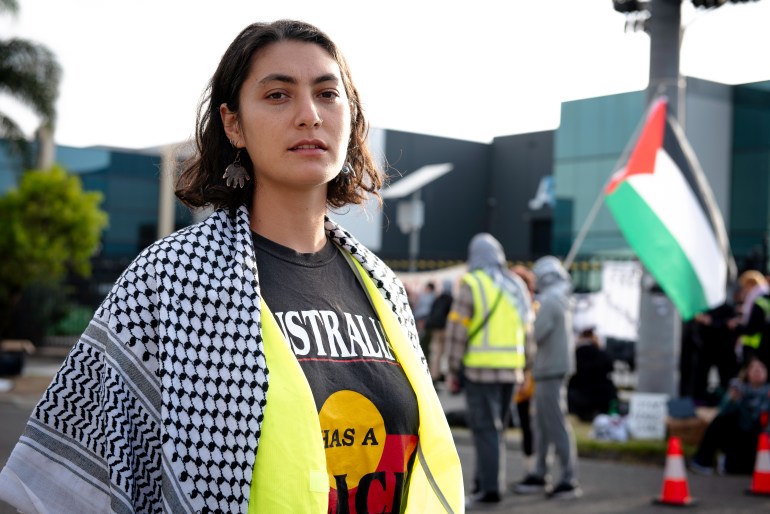Melbourne, Australia – Israel’s ongoing attack on Gaza has brought attention to a concealed yet essential aspect of the global weapons manufacturing industry – suburban Australia.
Located in Melbourne’s industrial north, Heat Treatment Australia (HTA) is an Australian company that plays a crucial role in the production of F-35 Joint Strike Fighters; the same model that Israel is using to bomb Gaza.
For months, weekly protests of approximately 200 people have been held outside the unassuming factory, where heat treatment is applied to reinforce components for the fighter jet, a product of US military giant Lockheed Martin.
While protesters have at times disrupted production with their pickets, they remain worried about the activities inside factories like HTA.
“We decided to hold the community picket to disrupt workers, and we were successful in stopping work for the day,” community organizer Nathalie Farah told Al Jazeera. “We consider this to be a win.”
“Australia is absolutely complicit in the genocide that is happening,” said 26-year-old Farah, who is of Syrian and Palestinian origin. “Which is contrary to what the government might have us believe.”
More than 32,000 Palestinians have been killed since Israel launched its war in Gaza six months ago after Hamas killed more than 1,000 people in a surprise attack on Israel. The war, being investigated as a genocide by the International Court of Justice (ICJ), has left hundreds of thousands on the brink of starvation, according to the United Nations.
HTA – which did not respond to Al Jazeera for comment – is just one of an increasing number of companies in Australia engaged in the weapons manufacturing industry.
Nathalie Farah has been organizing regular protests outside HTA’s factory [Ali MC/Al Jazeera]
According to Lockheed Martin, “Every F-35 built contains some Australian parts and components,” with more than 70 Australian companies having export contracts valued at…
Source from www.aljazeera.com
